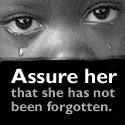It has been a while since the description of a book has gotten my attention as much as the latest book I have read, ‘The Resurrection ’ by Mike Duran.
’ by Mike Duran.
Here is the synopsis of this fascinating novel :
:
When the dead come back to life, someone must pay the price. When Ruby Case raises a boy from the dead, she creates an uproar in the quiet coastal town of Stonetree. Some brand her a witch; others, a godsend. But the controversy is just the beginning. For this resurrection has awakened more than just a dead boy…
Reverend Ian Clark does not believe the miracle. Haunted by demons, both past and present, he is resigning from the ministry and has no interest in the city’s spiritual climate, much less its urban legends. But he is about to get a wake-up call…
Together, Ruby and Reverend Clark are thrust into a search for answers…and a collision with unspeakable darkness. For the forces unleashed by Ruby threaten to destroy them all. In the coming battle this unlikely duo is the town’s only hope. But can they overcome their own brokenness in time to stop the evil, or will they be the next victim?
Here is the biography of this author:
Mike Duran is a freelance writer whose short stories, essays, and commentaries have appeared in Relief Journal, Relevant Online, Novel Journey, Rue Morgue magazine and other print and digital outlets. Duran is an ordained minister and lives with his wife and four grown children in Southern California. You can learn more about him, his writing projects, creative interests, and confessions at his website www.mikeduran.com.
Here is the book trailer:
And here is Pastor Duran explaining the inception of the idea behind his debut novel
Reverend Clark is an interesting person who does not seem to be a good fit for this new congregation of his:
In his late twenties, Ian Clark was an odd match for the aging, listless congregation. His braided choker, with its ivory beads and rustic diamond-shaped pendant, peeked from beneath his collar. Affectionately labeled “Surfer Dude” by the youth group, the man had an affinity for peculiar jewelry – an observation that rarely went unnoticed when the critics raged. With his wire-rimmed glasses, youthful gait, and intellectual energy, he exuded collegiate airs. Still a year after Reverend Lawrence’s abrupt resignation, Clark had yet to endear himself to the congregation. (p. 9)
The city of Stonetree had some spiritually questionable elements; Reverend Clark initially downplayed their impact:
Without a doubt the city attracted a diverse religious crowd. Crystal shops, aromatherapists, and avant-garde apothecaries sprinkled the downtown arts colony. People came great distances to purchase dragon’s blood resin or rare white sage from some dude in sandals, frock, or tie-dyed regalia. But every city had its religious fringe. Even Windayven, with its well-to-do, white collar establishments, had its share of hole-in-the-wall psychics. Clark had prepared himself for the “fruits and nuts” of the West Coast, so Stonetree’s occult underbelly was not a great surprise. Nevertheless, Mesoamerican death gods were a far cry from herbalists and astrologers. (p. 115)
I found the character of Professor Keen, who had been a seminary professor of Reverend Clark’s, to be fascinating. He is a perfect example of someone who follows the Lord, then steps over to the dark side. He was perfectly portrayed. His character showed how people of renown can have a strong (and negative) impact on people over whom they have influence. It is a perfect example how we need to heed the Bible’s admonition to ‘test the spirits’ (1 John 4:1-6).
This is a really thought-provoking book! It seems to me that the fight between good and evil in the spiritual realm is downplayed or ignored in our world – and in our churches – today. I appreciate how Pastor Duran reminds us that there is a world/realm beyond our own in the here and now. It’s not just heaven we need to be prepared for; we also need to be aware of what is happening in between the heavenly hosts and the powers of darkness.
This book also reminded me that I perhaps succumb to the dark things more than the Lord would like to see. There are good things and evil things – and some things that lean to one or the other of the extremes. I needed that reminder, and I thank Pastor Duran for writing such a tremendous book.
I read ‘This Present Darkness ’ by Frank Peretti when it was originally released in 1986, and ‘Piercing the Darkness
’ by Frank Peretti when it was originally released in 1986, and ‘Piercing the Darkness ’ in 1989. Both are classics in the Christian Suspense genre. I would favorably compare ‘The Resurrection
’ in 1989. Both are classics in the Christian Suspense genre. I would favorably compare ‘The Resurrection ’ – which happens to be Pastor Duran’s debut novel – to those two books. That is high praise indeed!
’ – which happens to be Pastor Duran’s debut novel – to those two books. That is high praise indeed!
I was excited to learn that there is another book coming from Pastor Duran’s computer – ‘The Telling.’ The first chapter is included at the end of this book. I look forward with great anticipation to the sophomore effort from this talented writer whose debut novel points its reader to the Savior whose power is mightier than those fighting for the deceiver of the brethren (Revelation 20:10).
You can order this book here .
.
This book was published by Realms and provided by them for review purposes. I am pleased to be participating in the CSFF Blog Tour for this book with these other bloggers.

















.jpg)

